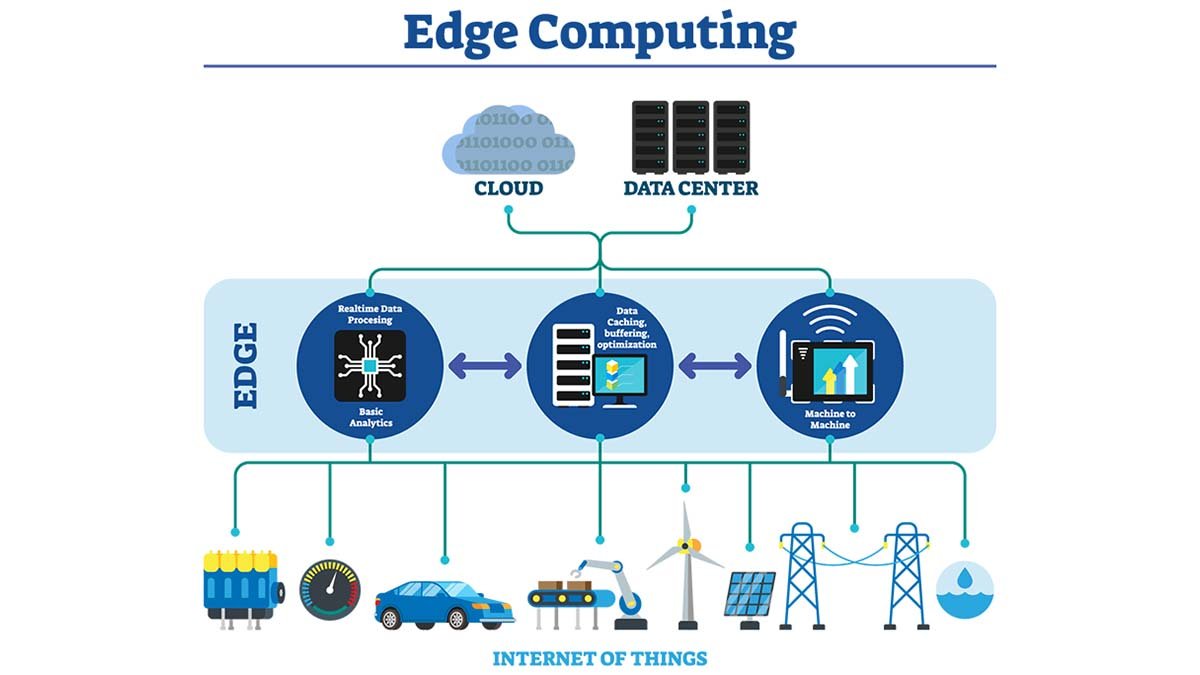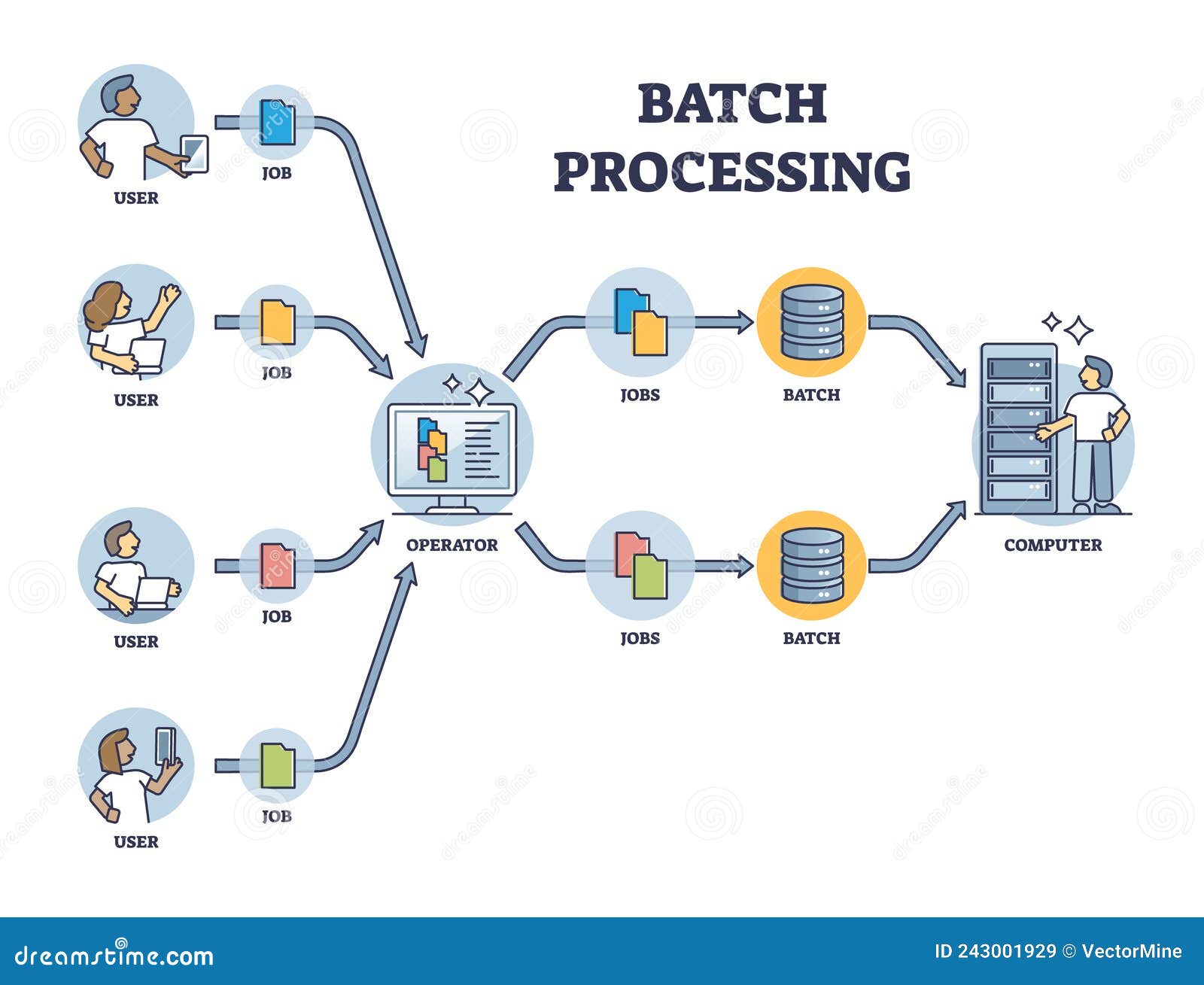Imagine a world where data processing isn't just efficient—it's groundbreaking. Remote IoT batch job examples have been quietly transforming industries for years, revolutionizing how we handle data since yesterday. This isn't just about crunching numbers; it's about creating smarter systems that adapt to our needs, faster than ever before. Whether you're managing smart cities, optimizing industrial processes, or monitoring healthcare devices, the power of remote IoT batch jobs is undeniable.
Data processing has always been a challenge, especially when dealing with large-scale IoT deployments. But what if there was a way to streamline this process, making it not only easier but also more cost-effective? Enter remote IoT batch jobs. These innovative solutions are changing the game by allowing organizations to process vast amounts of data remotely, ensuring accuracy and efficiency without compromising on security.
In today's fast-paced digital era, staying ahead of the curve is essential. With remote IoT batch job examples, businesses can harness the full potential of their data, transforming raw information into actionable insights. This article dives deep into the world of remote IoT batch processing, exploring its applications, benefits, and how it's shaping the future of data management.
Read also:July 6th Zodiac Sign Discover The Unique Traits Of Cancer
What Exactly is Remote IoT Batch Processing?
Remote IoT batch processing refers to the practice of handling large datasets collected from IoT devices in bulk, rather than processing them in real-time. This method is particularly useful when dealing with non-critical data that doesn't require immediate attention. By leveraging cloud computing and advanced analytics, remote IoT batch jobs enable organizations to process data efficiently, reducing costs and improving overall performance.
Here’s a quick breakdown of why remote IoT batch processing matters:
- Cost-Effective: Processing data in batches reduces the need for continuous, real-time processing, which can be expensive.
- Scalability: Easily handle increasing amounts of data as your IoT network grows.
- Accuracy: Batch processing allows for more thorough analysis, ensuring higher data quality.
- Security: Centralized processing minimizes the risk of data breaches by keeping sensitive information secure.
As industries continue to adopt IoT technologies, the demand for efficient data processing solutions will only increase. Remote IoT batch jobs offer a practical and scalable solution to this growing need.
Why Remote IoT Batch Jobs Are Game-Changers
Let’s be real—data is the new oil. But just like oil, raw data isn’t worth much until it’s refined. That’s where remote IoT batch jobs come in. By processing data in batches, organizations can extract meaningful insights that drive decision-making and innovation.
Here are some reasons why remote IoT batch jobs are revolutionizing data processing:
Efficiency Meets Innovation
Batch processing eliminates the need for constant monitoring, freeing up resources for other critical tasks. This efficiency is especially important in industries like manufacturing, where downtime can cost millions. By automating data processing, remote IoT batch jobs ensure that businesses can focus on what truly matters—growth and innovation.
Read also:How Old Is Jensen Ackles A Comprehensive Guide To The Supernatural Stars Life
Real-World Applications
From agriculture to healthcare, remote IoT batch jobs are making waves across various sectors. In agriculture, for instance, farmers use IoT sensors to monitor soil moisture levels. These sensors collect vast amounts of data, which is then processed in batches to provide insights on crop health and yield optimization. Similarly, in healthcare, wearable devices collect patient data that can be analyzed to improve treatment outcomes.
How Remote IoT Batch Jobs Work
To understand the magic behind remote IoT batch jobs, let’s break down the process step by step:
Data Collection
IoT devices continuously gather data from their environment. This data could range from temperature readings to energy consumption metrics, depending on the application. The key here is to ensure that the data is accurate and relevant to the task at hand.
Data Transmission
Once collected, the data is transmitted to a central server or cloud platform. This transmission can occur via various methods, including Wi-Fi, cellular networks, or satellite connections. The choice of method depends on factors like location, data size, and security requirements.
Data Processing
The collected data is then processed in batches using advanced algorithms and analytics tools. This step involves cleaning the data, removing any anomalies, and extracting valuable insights. The processed data is then stored in a database for future use.
Data Analysis
Finally, the processed data is analyzed to derive actionable insights. These insights can be used to optimize operations, predict trends, or improve product performance. For example, a manufacturing company might use batch processing to identify patterns in machine performance, enabling proactive maintenance and reducing downtime.
Benefits of Remote IoT Batch Jobs
The advantages of remote IoT batch jobs are numerous, making them an attractive option for businesses looking to enhance their data processing capabilities. Here are some key benefits:
- Reduced Costs: By processing data in batches, organizations can significantly cut down on processing costs.
- Improved Accuracy: Batch processing allows for more thorough data analysis, resulting in higher accuracy and reliability.
- Enhanced Security: Centralized processing ensures that sensitive data is kept secure, reducing the risk of breaches.
- Scalability: Easily scale your IoT network without worrying about processing limitations.
These benefits make remote IoT batch jobs an ideal solution for businesses of all sizes, from startups to multinational corporations.
Challenges and Solutions in Remote IoT Batch Processing
While remote IoT batch jobs offer numerous advantages, they aren’t without their challenges. Issues such as data latency, security concerns, and integration with existing systems can pose significant hurdles. However, with the right strategies in place, these challenges can be overcome.
Data Latency
One of the primary concerns with batch processing is data latency. Since data is processed in batches, there may be a delay in receiving insights. To mitigate this, organizations can implement hybrid processing models that combine batch and real-time processing, ensuring timely insights without compromising on accuracy.
Security Concerns
As with any data processing solution, security is a top priority. To address security concerns, organizations should implement robust encryption protocols and access controls. Regular audits and updates can also help ensure that systems remain secure against evolving threats.
Real-Life Examples of Remote IoT Batch Jobs
To truly appreciate the impact of remote IoT batch jobs, let’s take a look at some real-life examples:
Smart Cities
In smart cities, IoT sensors are used to monitor traffic patterns, air quality, and energy consumption. These sensors collect vast amounts of data, which is then processed in batches to provide insights on urban planning and resource management. By leveraging remote IoT batch jobs, cities can improve infrastructure, reduce pollution, and enhance the quality of life for their residents.
Industrial Automation
Manufacturing plants use IoT devices to monitor machine performance and predict maintenance needs. Batch processing enables these plants to analyze historical data, identifying patterns that indicate potential issues before they become critical. This proactive approach not only reduces downtime but also extends the lifespan of machinery.
Future Trends in Remote IoT Batch Processing
The future of remote IoT batch processing looks promising, with several emerging trends set to shape the industry. Here are some trends to watch out for:
Edge Computing
Edge computing involves processing data closer to the source, reducing latency and improving efficiency. As IoT networks continue to grow, edge computing will play a crucial role in enhancing the capabilities of remote IoT batch jobs.
Artificial Intelligence
AI-powered analytics will further enhance the accuracy and speed of data processing, enabling organizations to derive deeper insights from their data. With AI, remote IoT batch jobs can become even more efficient, driving innovation across industries.
How to Implement Remote IoT Batch Jobs
Implementing remote IoT batch jobs requires careful planning and execution. Here’s a step-by-step guide to help you get started:
- Define Your Goals: Clearly outline what you hope to achieve with remote IoT batch processing.
- Select the Right Tools: Choose analytics tools and platforms that align with your business needs.
- Set Up Data Collection: Deploy IoT devices and sensors to gather the necessary data.
- Process and Analyze Data: Use batch processing techniques to analyze the collected data and derive insights.
- Monitor and Optimize: Continuously monitor your systems and optimize processes for better performance.
By following these steps, you can successfully implement remote IoT batch jobs and unlock the full potential of your data.
Conclusion: Revolutionizing Data Processing Since Yesterday
Remote IoT batch job examples are transforming the way we handle data, offering efficient, cost-effective solutions for businesses across industries. From smart cities to industrial automation, the applications of remote IoT batch processing are vast and varied. By addressing challenges such as data latency and security concerns, organizations can fully harness the power of remote IoT batch jobs to drive innovation and growth.
So, are you ready to revolutionize your data processing? Dive into the world of remote IoT batch jobs and discover how they can transform your business. Don’t forget to leave a comment or share this article with your network—let’s keep the conversation going!
Table of Contents
- What Exactly is Remote IoT Batch Processing?
- Why Remote IoT Batch Jobs Are Game-Changers
- How Remote IoT Batch Jobs Work
- Benefits of Remote IoT Batch Jobs
- Challenges and Solutions in Remote IoT Batch Processing
- Real-Life Examples of Remote IoT Batch Jobs
- Future Trends in Remote IoT Batch Processing
- How to Implement Remote IoT Batch Jobs
- Conclusion


